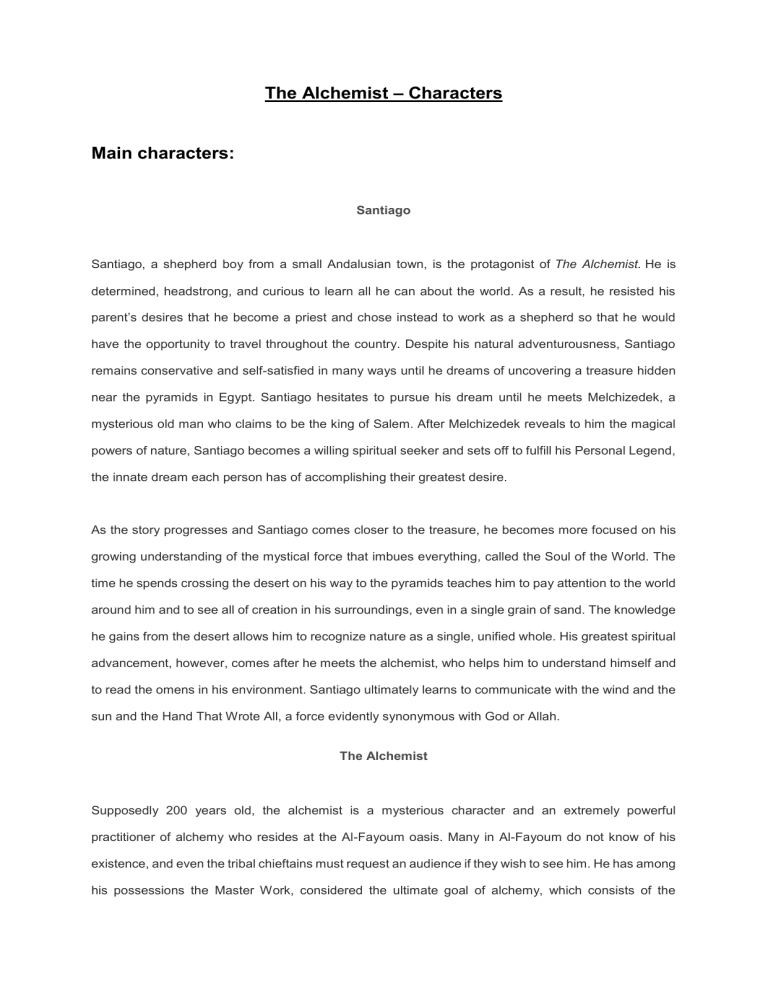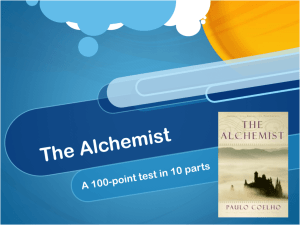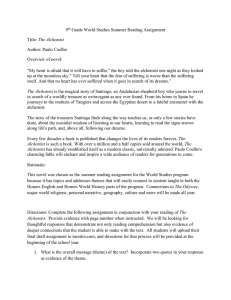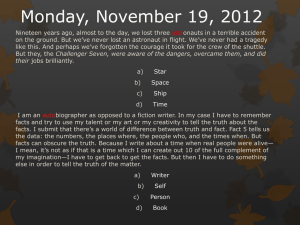
The Alchemist – Characters Main characters: Santiago Santiago, a shepherd boy from a small Andalusian town, is the protagonist of The Alchemist. He is determined, headstrong, and curious to learn all he can about the world. As a result, he resisted his parent’s desires that he become a priest and chose instead to work as a shepherd so that he would have the opportunity to travel throughout the country. Despite his natural adventurousness, Santiago remains conservative and self-satisfied in many ways until he dreams of uncovering a treasure hidden near the pyramids in Egypt. Santiago hesitates to pursue his dream until he meets Melchizedek, a mysterious old man who claims to be the king of Salem. After Melchizedek reveals to him the magical powers of nature, Santiago becomes a willing spiritual seeker and sets off to fulfill his Personal Legend, the innate dream each person has of accomplishing their greatest desire. As the story progresses and Santiago comes closer to the treasure, he becomes more focused on his growing understanding of the mystical force that imbues everything, called the Soul of the World. The time he spends crossing the desert on his way to the pyramids teaches him to pay attention to the world around him and to see all of creation in his surroundings, even in a single grain of sand. The knowledge he gains from the desert allows him to recognize nature as a single, unified whole. His greatest spiritual advancement, however, comes after he meets the alchemist, who helps him to understand himself and to read the omens in his environment. Santiago ultimately learns to communicate with the wind and the sun and the Hand That Wrote All, a force evidently synonymous with God or Allah. The Alchemist Supposedly 200 years old, the alchemist is a mysterious character and an extremely powerful practitioner of alchemy who resides at the Al-Fayoum oasis. Many in Al-Fayoum do not know of his existence, and even the tribal chieftains must request an audience if they wish to see him. He has among his possessions the Master Work, considered the ultimate goal of alchemy, which consists of the Philosopher’s Stone, capable of turning any metal into gold, and the Elixir of Life, able to cure all ills. In addition, he appears to possess magical powers. The alchemist mainly functions as a teacher to Santiago, though he often speaks in riddles and expects Santiago to learn more through experience than through verbal instruction. The alchemist’s teachings connect the book’s dominant metaphor of alchemy—transforming one element into another more valuable element—to Santiago’s own journey. The alchemist’s wisdom connects him to the mystical Soul of the World. This connection provides him with his supernatural abilities, and it allows him to guide Santiago on his own quest to understand the Soul of the World. Santiago, with the alchemist’s guidance, learns to read and communicate with the world around him, ultimately leading him to the treasure he seeks and to his own supernatural abilities. In other words, Santiago eventually undergoes his own transformation. The alchemist’s hands-off method of teaching, however, suggests that no direct form of instruction can allow someone to connect with the Soul of the World. Instead, Santiago, and in fact any student, must teach and transform himself by listening to his own heart and to his environment.



